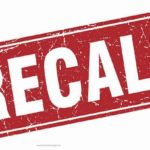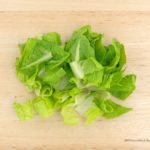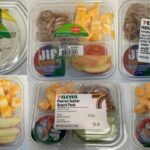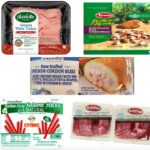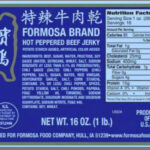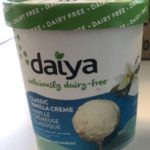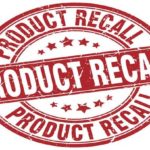Food recalls have reached their highest level since before the Covid pandemic happened in 2020, according to U.S. PIRG. During the pandemic, food recalls dropped precipitously. The lead poisoning outbreak linked to WanaBana cinnamon applesauce products and the Salmonella outbreak linked to cantaloupe helped drive those recalls. At least 500 children were sickened in the WanaBana outbreak, and in the cantaloupe outbreak, at least 407 people were sickened, 158 people were hospitalized, and six people died. That agency has released a report, "Food For Thought 2024," which found that food and beverage recalls increased by 8% in 2023. Meat, poultry and egg recalls issued by the USDA hit the highest levels since before the pandemic. FDA recalls have been about the same for the least … [Read more...]
Secondary Jif Peanut Butter Recalls Include Snacks, Chocolate, Deli Items
Secondary Jif peanut butter recalls have started, and the list is a long one. There are now more than a dozen secondary recalls ranging from snack packs to chocolate products to deli items made at individual stores. Keep this list handy as it will be updated daily with new recalls. The original recall of several varieties and configurations of peanut butter was issued on May 20, 2022. There is a Salmonella Senftenberg outbreak linked to some Jif peanut butter products. The recall notices all state that there are no illnesses linked to those specific products. You can see details about these recalls, including item numbers, lot codes, UPC numbers, expiration dates, stores where these products were sold, states where they were sold, and some product pictures in the individual recall … [Read more...]
FDA Urges Companies to Be Recall Ready to Protect Consumers
The FDA is urging companies to be "recall ready" to protect consumers. This guidance is part of finalized guidance for voluntary recalls. Companies should prepare to be able to quickly and effectively remove products from the marketplace. The guidance describes steps that the companies should take before a recall is deemed necessary. These steps include training, planning, and record-keeping to reduce the time that a recalled product is on store shelves. Those actions limit the public's exposure to potential risk such as undeclared allergens or pathogens. Judith McMeekin, Pharm. D., Associate Commissioner of Regulatory Affairs for the FDA said in a statement, "Voluntary recalls continue to be the fastest, most effective way for a company to correct or remove violative and … [Read more...]
Vua Kho Bo Beef Jerky Varieties Recalled For Undeclared Sesame
Legacy Food Company of Rancho Cucamonga, California, is recalling about 67,895 pounds of beef jerky varieties because they contain sesame oil, the newest official allergen, that is not declared on the label. Anyone who is allergic to sesame could have a serious reaction if they eat this product. There have been no confirmed reports of adverse reactions received to date in connection with the consumption of these products. The beef jerky items were produced on various dates from July 20, 2020 through May 14, 2021. The recalled products include: 10 pound packages containing “N4 Vua Kho Bo Curry Beef Jerky.” 10 pound packages containing “N8 Vua Kho Bo Flank Steak Beef Jerky Fish Sauce.” 10 pound packages containing “N9 Vua Kho Bo House Special Beef Jerky Fish Sauce.” 10 … [Read more...]
FASTER Act Needed For Food Allergen Research and Labeling
The Food Allergy Safety, Treatment, Education, and Research (FASTER) Act is needed for food allergen research and labeling. Thirty-two million Americans are allergic to many foods other than the eight major food allergen groups (milk, eggs, wheat, finfish, shellfish, soy, peanuts, and tree nuts) and more ingredients should be classified as food allergens. Some of these allergic reactions are life-threatening, and others result in hospitalization. Many of the pieces posted at Food Poisoning Bulletin focus on recalls for undeclared allergens in different food products. Sesame is probably the next in line to be added to the FDA's list of food allergens. More than 1.5 million people are allergic to sesame, but that ingredient does not have to be listed on product labels. On a … [Read more...]
FDA Warns Whole Foods For Selling Misbranded Products
The FDA warns Whole Foods for selling misbranded products as part of the government's efforts to address undeclared allergens as the leading cause of food recalls in this country. The history of Whole Foods recalls was reviewed, and the FDA states that "These recalls demonstrate that your corporation engaged in a pattern of receiving and offering for sale misbranded food products. For the time period of October 2019 to November 2020, your firm recalled 32 food products due to undeclared allergen(s). We noticed similar patterns of numerous recalls for undeclared allergens in previous years as well." Some of the recalled products include Whole Foods Market Minestrone Soup, which was recalled in April 2020 for undeclared milk. The reason given for the recall was that the internal … [Read more...]
Daiya Classic Vanilla Creme Non-Dairy Frozen Dessert Recalled
Daiya Foods Inc. is recalling Daiya Classic Vanilla Creme Non-Dairy Frozen Dessert from the marketplace in Canada because it contains milk, one of the major food allergens, that is not declared on the label. Anyone who is allergic to milk or who is lactose intolerant could have a serious reaction if they eat this product. No illnesses or allergic reactions have been reported to the company to date. The recalled product is Daiya Classic Vanilla Creme Non-Dairy Frozen Dessert sold in 473 ml packages. The UPC number on the product is 8 71459 00984 1, and the codes on the label are 600820 and BB 08 JA 2021. The recall was triggered by the company. The Canadian Food Inspection Agency (CFIA) is conducting a food safety investigation and may trigger the recall of more products. If this … [Read more...]
First Quarter Recalls Plummet, But Experts Expect Rebound
The first quarter recalls from the FDA and USDA plummeted to unprecedented low levels during the coronavirus pandemic lockdown. For instance, while the FDA's recall level did dip in the first quarter, down 9.6% from 2019, the USDA only posted three recalls in January, February, and March 2020. That's a decrease of 78.6% from the previous year. And in the second quarter, only five recalls were posted on the USDA web site, with just 18 days left in the quarter. Stericycle Expert Solutions, which analyzes recalls every quarter, predict that "the coronavirus pandemic will lead to an eventual spike of recalls across the food, drug, consumer product, medical device, and auto industries once restrictions on businesses are lifted and regulators resume their traditional oversight … [Read more...]
